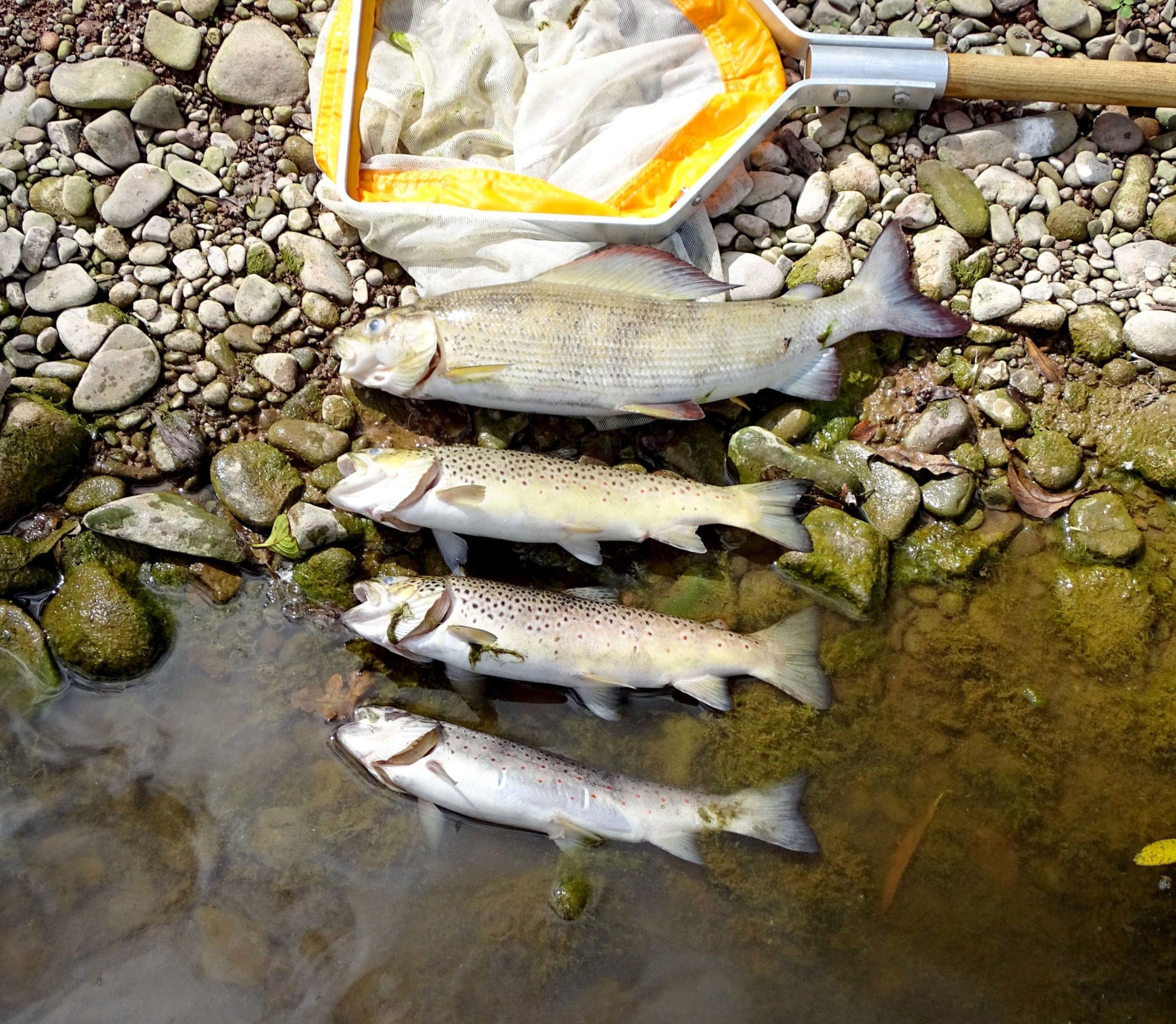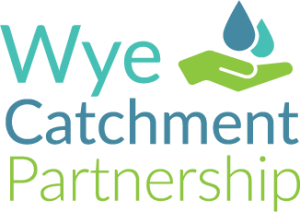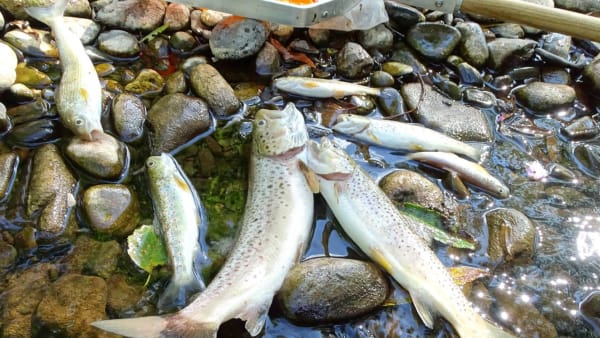Monday, 3rd August, 2020
On Friday, a pollution event devastated several kilometres of the lower reaches of the Afon Llynfi, an important upper Wye tributary.
Eye witnesses reported dead and dying fish of various species, including salmon, trout, grayling, bullheads and brook lampreys. Dead invertebrates were also reported while crayfish and eels were witnessed on the banks trying to escape the river.
The SAC-designated stream is no stranger to pollution, suffering another substantial fish kill in 2016. However, this weekend’s incident could be even worse with what appears to be a complete kill over the affected reach down to the Llynfi’s confluence with the Wye.

The Afon Llynfi on Saturday, showing the pollution.
This is the latest in an increasing number of pollution incidents that have been damaging rivers across Wales, a country that according to the brochure, prides itself on its clean, natural environment.
Officers from Natural Resources Wales have been carrying out investigations into the pollutant and its source. It is hoped that they can identify the culprit and that unlike the 2016 incident where no prosecution resulted, the necessary action can be taken this time.
What makes the weekend’s events all the more tragic is that the Llynfi was showing good signs of recovery. In the last four years, Gwent Angling Society, who own and lease a large part of the affected section the river, have been working hard to recover the Llynfi’s fish and invertebrate numbers. In partnership with the angling club and Natural Resources Wales, the Foundation had also completed a significant habitat improvement programme on the stream just before the pollution struck.
New River Llynfi Restoration Project

The carcasses of thousands of dead fish, both adult and juveniles, littered the banks of the Llynfi at the weekend.
Understandably, there is anger and despair amongst local residents, anglers and those that have been involved in the restoration of the stream’s health. Dave Collins, Vice Chairman of the Gwent Angling Society, who attended the scene over the weekend told us:
“There are probably tens of thousands of dead fish from the top of the pollution to the Wye confluence. Nearly every fish in this section of river has perished, from the tiniest bullhead to adult trout and grayling, perch, eels, brook lampreys and juvenile salmon.
 When I was on the river on Saturday afternoon most of the fish were already dead but there were still some small live bullheads and lampreys in the margins, no doubt seeking oxygen. However, the river is now littered with their carcasses along with those of the fish that died immediately. The low flows have meant that the dead fish have not been washed downstream.
When I was on the river on Saturday afternoon most of the fish were already dead but there were still some small live bullheads and lampreys in the margins, no doubt seeking oxygen. However, the river is now littered with their carcasses along with those of the fish that died immediately. The low flows have meant that the dead fish have not been washed downstream.
Needless to say that after all of our club’s work and investment of time, money and assiduous monitoring of the recovery over the last four years, I am otherwise lost for words.”
According to the BBC, Natural Resources Wales have advised people not to go into the Llynfi or nearby waters for the time being. The Fishing Passport beat at Pontithel has also been closed until further notice.
With graphic images of dead fish and invertebrates, the environmental damage caused by such pollutions is obvious. What often appears to be over-looked, especially by some policy-makers, is the anguish these incidents cause to people such as the members of Gwent Angling Society. In other words, those that care about rivers and who invest so much of their own free time and resources into looking after them.
For now, we will have to wait for Natural Resources Wales to complete their investigations and hope that enough evidence is found to bring a prosecution. Unless this happens, the culprit and other potential polluters across Wales will continue to show scant regard to rivers that are such a vital element of the country’s natural environment.



